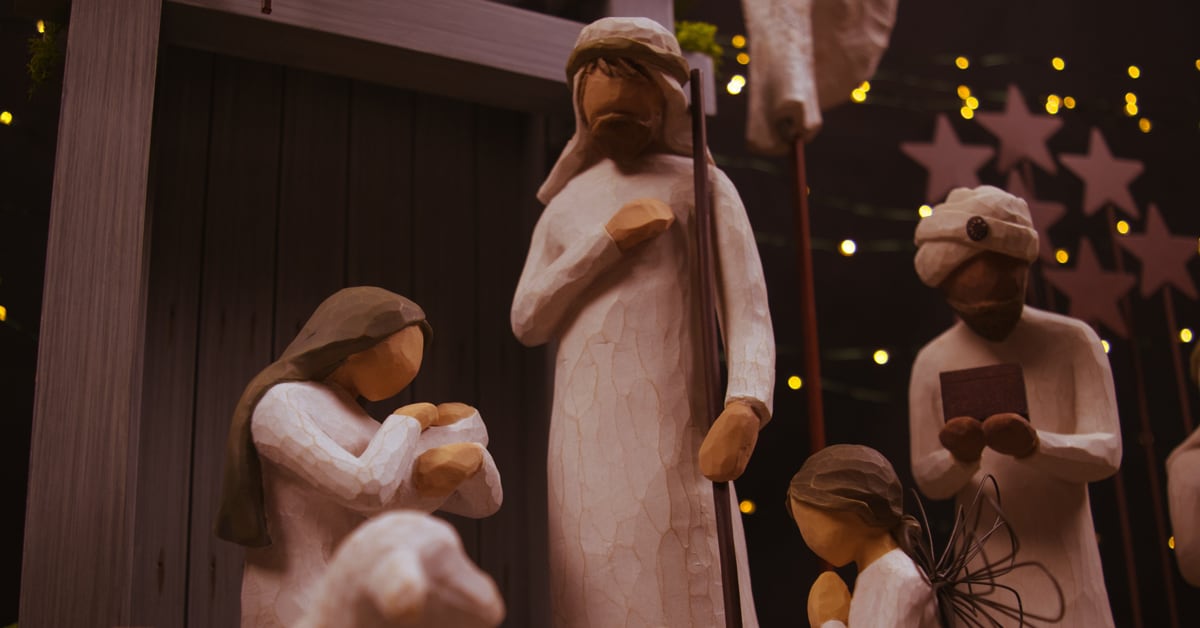
This post was written by Katelyn Beaty and originally published in Christianity Today in December 2015.
We don’t believe in Christmas anymore. We believe in Christmas gatherings, Christmas shopping, and Christmas recitals, of course, and even Christmas outreach events and Christmas acts of charity. If you are reading this issue of CT while fighting tryptophan-induced sleep, you know that Christmas has dominated our mass-mediated imagination since before Halloween. Christmas is the piece de resistance of a year spent hustling from one “big event” to another, anticipating the next holiday as we try to enjoy the present one.
Christmas is the biggest celebration on the calendar. But we know not what we celebrate.
Church leaders are in a major bind with this one. They have to compete with the usual rivals—Santa Claus, TV specials, and generic holiday cheer that can be felt without taking the family to a church. In recent years, Christian leaders face the allure of a new Star Wars film. In a tossup between the baby Jesus and Luke Skywalker, I’m not sure most Christians would bet on the Christ Child over the Jedi Fighter.
In an effort to capture their neighbors’ flitting attention, churches have perfected their Christmastime marketing game. It’s no longer the Christmas sermon; it’s four weeks of “Unwrapping Christmas” or “An Upside-Down Christmas,” with children’s programs and four weekend services—all requiring members’ time and energy—to match. In a 2011 Charisma article on “the 12 mistakes of Christmas outreach,” the No. 1 mistake is “not planning for something great.” Even God knows you gotta have a WOW moment: “The Incarnation was one of God’s Biggest Ideas,” write the authors. “Create a new Christmas tradition, that of birthing new, remarkable ideas.”
The Advent Conspiracy, founded in 2006 to encourage worship, simplicity, and giving, rightly draws the holiday away from ourselves, onto God and others. But even it tries to add big ideas—generosity and justice—to God’s Big Idea. Our critiques of Christmas consumerism come wrapped in the packaging of a consumerist society.
It’s like we don’t trust the Incarnation to sell itself.
And maybe that’s our problem. The trick about the Incarnation—God becoming man; God becoming man—is that it can’t be sold, scheduled, or enjoyed in the way a glass of eggnog or a new gadget can. It refuses to bend to the rules of the market. It can only be beheld.
The passage in Luke 2 returns us to the humility and poverty of the Christmas story. God does not enter our world donning bells and whistles, hoping to compete with Luke Skywalker or Love Actually reruns. He doesn’t hope to “attract” more people with his “message.” Instead, he waits for our eyes to adjust to the dim light emanating from the manger, to come, to see, to behold—and to truly celebrate.
This is very good news for church leaders, who experience great pressure at Christmas to increase attendance and giving. It means they need not think up a “big idea” to add to the Incarnation, but rather communicate—as clearly and plainly as possible—the big idea that is the Incarnation. Essayist Dorothy Sayers helps us on this point:
It is the dogma that is the drama—not beautiful phrases, nor comforting sentiments, nor vague aspirations to loving-kindness and uplift, nor the promise of something nice after death—but the terrifying assertion that the same God who made the world, lived in the world and passed through the grave and gate of death.
The Christmas story is “terrifying” because it is beyond human thought. It is nothing we humans could have invented. Yet it is everything that we need to hear in order to flourish in our dark and violent world. It is the great rescue plan of God, initiated before time itself to save sinners from death. It is salvation.
Come and behold.
This post was adapted from A Light Has Dawned: Meditations on Advent and Christmas (Lexham Press, 2020).







